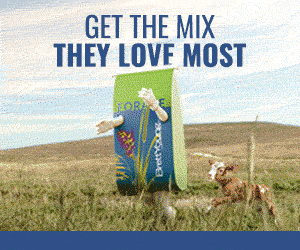AB Direct - Steers
Rail: ---
AB Direct - Heifers
Rail: ---
US Trade- Steers
Rail: ---
US Trade - Heifers
Rail: ---
Canadian Dollar
0.35
Fall Vaccination Checklist
Fall is coming, it’s time to talk to your veterinarian to discuss a vaccination program that prevents and controls disease risks in the herd, including cows, calves, and bulls. (Don’t forget the bulls!) Core vaccines to discuss include, but are not limited to: IBR, BVD, BRSV, and Clostridial species (BRD may also be recommended).
BCRC: Vaccination of the beef herd
- Order vaccines and other treatment needs as advised by veterinarian.
- Regularly check and log drug fridge temperature with a fridge thermometer. It needs to consistently measure 4 degrees C. Different areas of the fridge (like the door) may have fluctuations in temperature.
Check animal health inventory:
- Epichlor (that isn’t outdated) and dexamethasone (know the dosages of each in case an animal has an anaphylactic reaction to the vaccine – this does happen occasionally).
Check syringe and needle inventory
- Mixing needles
- 18 g x ½” needles (for subcutaneous use in young calves)
- 16 g x ½”, ⅝”, or ¾” (for subcutaneous use in calves over six months)
- 16 g x ½” or ⅝” or ¾” needles (for subcutaneous use in cows/bulls)
- 18 g x ⅝” or ¾” needles (for intramuscular use in young calves)
- 16 g x 1″ needles (for intramuscular use in calves over six months)
- 16 g x 1″ or 1½” needles (for intramuscular use in cows/bulls)
- Syringes (enough to cover all vaccines, plus extras in case of syringe trouble, or emergencies)
Vaccine Day Considerations
- Read all vaccine labels before use and ensure the person in charge of needling is trained on the storage and handling of each.
- Clean, inspect, and trial each syringe before going out.
- Ensure syringes are clearly marked so there’s no question when re-filling.
- Pack extra syringes and spare parts to have by the chute.
- Use an insulated container with frozen ice packs and minimize how often the container is opened.
- Don’t put vaccine bottles directly on an ice pack – put paper towel in between.
- Ensure any opened vaccine bottles are put immediately back in the cooler – do not leave vaccines sitting outside in the sunlight.
- Use a clean transfer needle to reconstitute MLV vaccines as per label directions. Use within 1 hour after mixing.
- Agitate modified live vaccines before use and during use to ensure components stay mixed well.
- Change to a clean needle each time you fill the syringe or if needle becomes bent or burred
- Ensure animals are adequately restrained prior to vaccination.
- If using intranasal vaccine, ensure you administer it using the nasal cannula provided and in one or both nostrils pending manufacturer’s label directions.
- For subcutaneous and intramuscular vaccines, ensure you only give them in the neck, and make sure to avoid the jugular. Use the “tented method” to give subcutaneous injections. Never inject in the butt or back leg muscles or over the ribs or under the “armpit.”
- Take only as much vaccine as you’ll use before a break.
- Keep records of vaccinations administered to different groups of animals (i.e., heifers, cows, calves, bulls), if any individual animals were missed, or if any needles were broken.
Vaccines Are Cheap Insurance – Don’t Let Your Premiums Lapse
This list was developed in consultation with Dr. Joyce Van Donkersgoed, a beef cattle veterinarian based out of southern Alberta. Dr. Van Donkersgoed is currently working on a Beef Cattle Research Council (BCRC) funded extension project with a large group of industry stakeholders, on improving vaccination usage in western Canadian beef cow herds, using a holistic disease management approach. The project will see the development of core and risk-based vaccination guidelines, disease information, and videos on how to properly use vaccines to maximize their effectiveness.
This article was first published in Volume 2 Issue 3 of ABP Magazine (July 2022). Watch for more digital content from the magazine on ABP Daily.

